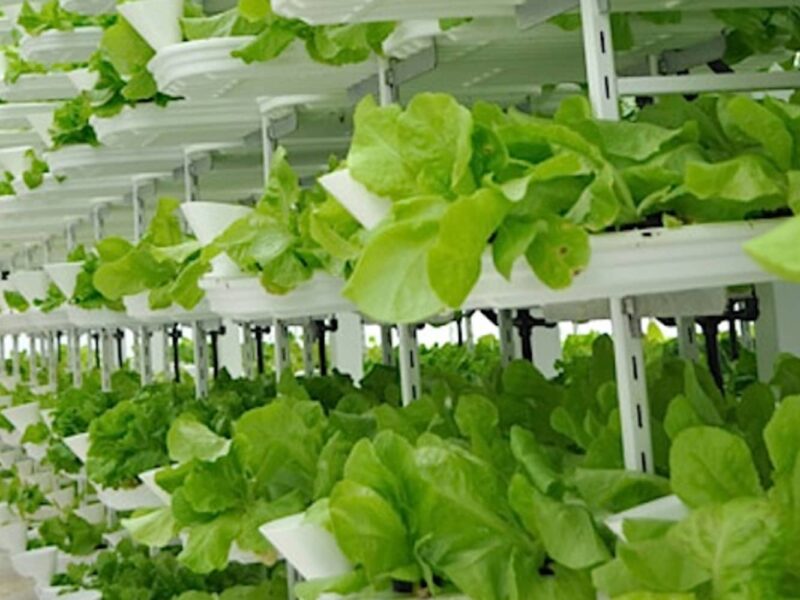
QXEFV in Agriculture: Revolutionizing the Farming Landscape with Cutting-Edge Technology
Introduction
In the ever-evolving world of agriculture, technology plays a pivotal role in enhancing productivity, sustainability, and efficiency. Amidst the acronyms and buzzwords, a recent addition to the agricultural lexicon has piqued the curiosity of farmers, researchers, and industry stakeholders – QXEFV. This article delves into the revolutionary impact of QXEFV on the agricultural world, exploring its applications, potential benefits, and the transformative role it could play in shaping the future of farming. Click here to read more.
Understanding QXEFV in Agriculture
QXEFV, as it pertains to agriculture, represents a paradigm shift in the application of cutting-edge technology to address the challenges faced by the global farming community. While the specifics of QXEFV remain shrouded in mystery, its potential applications in agriculture can be extrapolated from the convergence of various technological domains such as precision farming, data analytics, artificial intelligence, and possibly even quantum computing.
Precision Farming Redefined
One of the primary ways QXEFV is expected to impact agriculture is through the evolution of precision farming. Precision farming leverages technology to optimize field-level management with regard to crop farming. QXEFV might introduce unprecedented precision at the molecular or quantum level, allowing farmers to manipulate and control agricultural processes with unparalleled accuracy.
Quantum Computing and Data Analytics
Given the complexity of agricultural systems, QXEFV may incorporate quantum computing to process vast amounts of agricultural data with exceptional speed. Quantum algorithms could analyze diverse datasets, including soil composition, weather patterns, crop health, and market trends, providing farmers with insights that were previously unattainable. The integration of quantum computing into data analytics could usher in a new era of data-driven decision-making in agriculture.
Enhanced Crop Monitoring and Management
QXEFV’s potential in agriculture extends to advanced crop monitoring and management. Quantum sensors or nanoscale technologies may be employed to monitor crop health, detect diseases at early stages, and optimize resource utilization. The ability to observe and manipulate biological processes at the quantum level could lead to breakthroughs in crop breeding, pest control, and the overall resilience of agricultural systems.
Sustainable Agriculture Practices
As the global community grapples with the challenges of climate change and resource depletion, sustainable agriculture practices have become imperative. QXEFV could play a pivotal role in developing innovative solutions for sustainable farming. This might involve nanoscale technologies for precision delivery of fertilizers, quantum-inspired strategies for water management, and the development of crops with enhanced resistance to environmental stressors.
Efficient Resource Utilization
Agriculture is inherently resource-intensive, requiring careful management of land, water, and energy. QXEFV could contribute to the efficient utilization of resources by optimizing irrigation systems, predicting crop yield fluctuations, and minimizing waste. The integration of quantum-inspired algorithms into resource management practices could enhance the overall efficiency and sustainability of agricultural operations.
Challenges and Considerations
While the potential benefits of QXEFV in agriculture are promising, challenges and considerations must be addressed. Ethical concerns related to the manipulation of biological processes at the quantum level, potential environmental impacts, and the accessibility of QXEFV technologies to farmers of varying scales must be carefully examined. Additionally, ensuring data security and privacy in the era of quantum computing becomes a critical aspect of QXEFV implementation in agriculture.
The Future of QXEFV in Agriculture
The future of QXEFV in agriculture holds the promise of a more resilient, sustainable, and productive farming landscape. As research and development in quantum technologies progress, farmers may witness a transformation in their day-to-day operations. From optimized resource management to advanced crop breeding techniques, the possibilities are as vast as the agricultural fields that stand to benefit from the advent of QXEFV.
Collaboration and Knowledge Sharing
The successful integration of QXEFV into agriculture requires collaborative efforts between scientists, researchers, technology developers, and farmers. Knowledge sharing and open collaboration will be essential in navigating the complexities of this cutting-edge technology. Agricultural communities around the world stand to gain from a collective pursuit of solutions that enhance productivity while promoting environmental stewardship.
Conclusion
QXEFV emerges as a beacon of hope in the ever-evolving landscape of agriculture, promising a future where technology transcends current limitations to address the pressing challenges faced by farmers globally. As we embark on this journey of technological innovation, it is crucial to approach the integration of QXEFV into agriculture with a balance of excitement and responsibility. The fusion of quantum-inspired technologies with the age-old practice of farming signifies a new chapter in agriculture—one that holds the potential to redefine the way we cultivate, sustain, and nourish our growing world.






